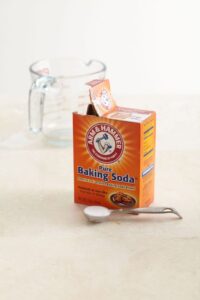HAIRCARE
How to Get Rid of Dry Scalp
Dealing with a dry scalp is no joke. It's uncomfortable, itchy, and can even become painful if ignored. The truth is, nobody is immune to experiencing it - it impacts both women and men.
Initially, a dry scalp often shows up as irritation, resulting in flaking skin. It might not sound pleasant, but it's a common issue that can be managed.
Just like your skin, your hair deserves care too. If you’re serious about skincare, don’t overlook the significance of haircare. After all, your hair is an integral part of you, and it deserves attention and proper treatment.
Consider this: hair conditions such as dry scalp can stem from skin issues like dryness or eczema, and they can even exacerbate skin conditions like acne. Whether it’s dry hair or a dry scalp, it’s all bothersome but manageable with a bit of care.
Whether you’re managing your natural hair or hair extensions, tending to your locks is crucial, whether they’re clipped on or grown out.
If you’re grappling with how to tackle your dry scalp, it’s essential to grasp its nature, causes, and treatment options. Remember, you’re not alone, and with some tender loving care, your dry scalp will soon be nourished and healthy again.
What is a Dry Scalp?
Dry scalp is a condition that arises when the scalp produces insufficient moisture or retains less moisture because of a lack of oil.
Consequently, when your scalp becomes dry, it becomes irritated, leading to flaking of the skin, resembling dandruff, often causing confusion between the two.
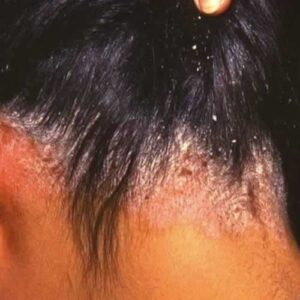
WHAT IS DANDRUFF?
Whereas dry scalp manifests as tiny dry flakes of dead skin, dandruff presents as larger, oily flakes that are typically yellowish-white in color.
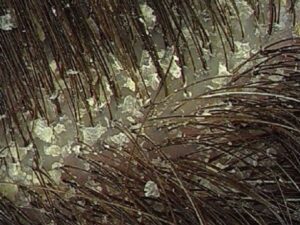
Distinguishing Dandruff from Dry Scalp
Dandruff is a scalp issue characterized by the shedding of dead skin cells. Despite their similarities, dandruff and dry scalp are distinct conditions, each necessitating its own treatment approach.
Causes of Dry Scalp
Dry scalp can be bothersome, but understanding its origins is crucial. When pondering over the question “Why is my scalp so dry?” consider the various factors contributing to its dryness.
Dry Skin
People with dry skin often experience dry scalp, as noted by Medical News Today.
Harsh Hair Care Ingredients
Many hair products contain harsh chemical ingredients like alcohol, which can dehydrate the scalp. Opt for products with natural, hydrating ingredients instead.
Excessive Washing
Over-washing, especially with products containing alcohol, can strip the scalp of its natural oils, leading to dryness. It’s important to determine the appropriate washing frequency based on your hair type.
Skin Conditions
Scalp conditions like seborrhea, seborrheic dermatitis, and eczema can cause dry scalp, sometimes triggered by ingredients in hair products. Seeking professional help is advisable for underlying skin conditions.
Cold, Dry Air
Dry air, particularly in colder months, can exacerbate scalp dryness.
Aging
With age, the skin’s oil-producing glands become less active, resulting in reduced natural moisture for the scalp. Using moisturizing products becomes crucial as you age to maintain scalp and hair hydration.
Allergies
Allergic reactions to hair product ingredients, especially harsh ones, are common culprits behind dry scalp.
How to Manage Dry Scalp
Dealing with dry scalp can involve various strategies. Here are some ways to address it:
1. Opt for New Hair Products
Choose shampoos, conditioners, and styling products free of harsh ingredients that can dry out your scalp. Look for products tailored to your specific hair type, especially if you have dry skin and hair prone to sensitivity.
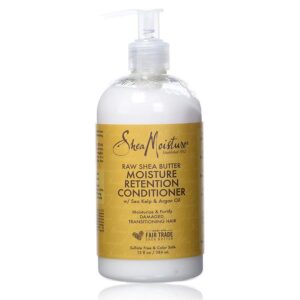
2. Reduce Washing Frequency
Give your hair a break by washing it less frequently. Over-washing can contribute to drying out both your hair and scalp.
3. Use Exfoliating Products
Just like the skin on the rest of your body, your scalp needs to shed dead skin cells. Incorporate an exfoliating scalp mask into your routine once or twice a week to reduce flakiness and buildup and soothe irritation.
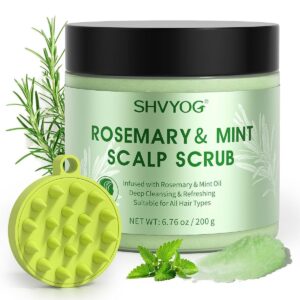
4. Try Aspirin
Aspirin contains salicylic acid, which is known for its restorative properties. Crush two aspirin tablets and add the powder to your shampoo to help treat dry scalp. Rinse the mixture out after letting it sit for 2 minutes for optimal results.
5. Apply Natural Oils
Restore moisture to your scalp by applying natural oils like almond oil, olive oil, coconut oil, or jojoba oil. These oils can help ease irritation and provide anti-inflammatory benefits. Warm up the oil of your choice and apply it evenly to your scalp, leaving it on overnight for best results.
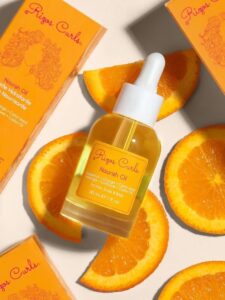
6. Use Apple Cider Vinegar
Rinsing your hair with a mixture of apple cider vinegar and water can help treat dry scalp. Apple cider vinegar acts as a natural astringent, protecting your scalp from flakes and fungi. After shampooing, rinse your hair with a solution of two cups of apple cider vinegar and two cups of cold water.
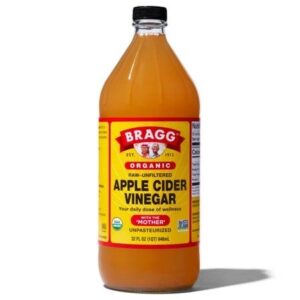
7. Try Baking Soda
Consider using baking soda as a shampoo alternative for a few days to combat dry scalp. Rub a handful of baking soda into your hair and scalp, then rinse it out with warm water after letting it sit for a couple of minutes.
